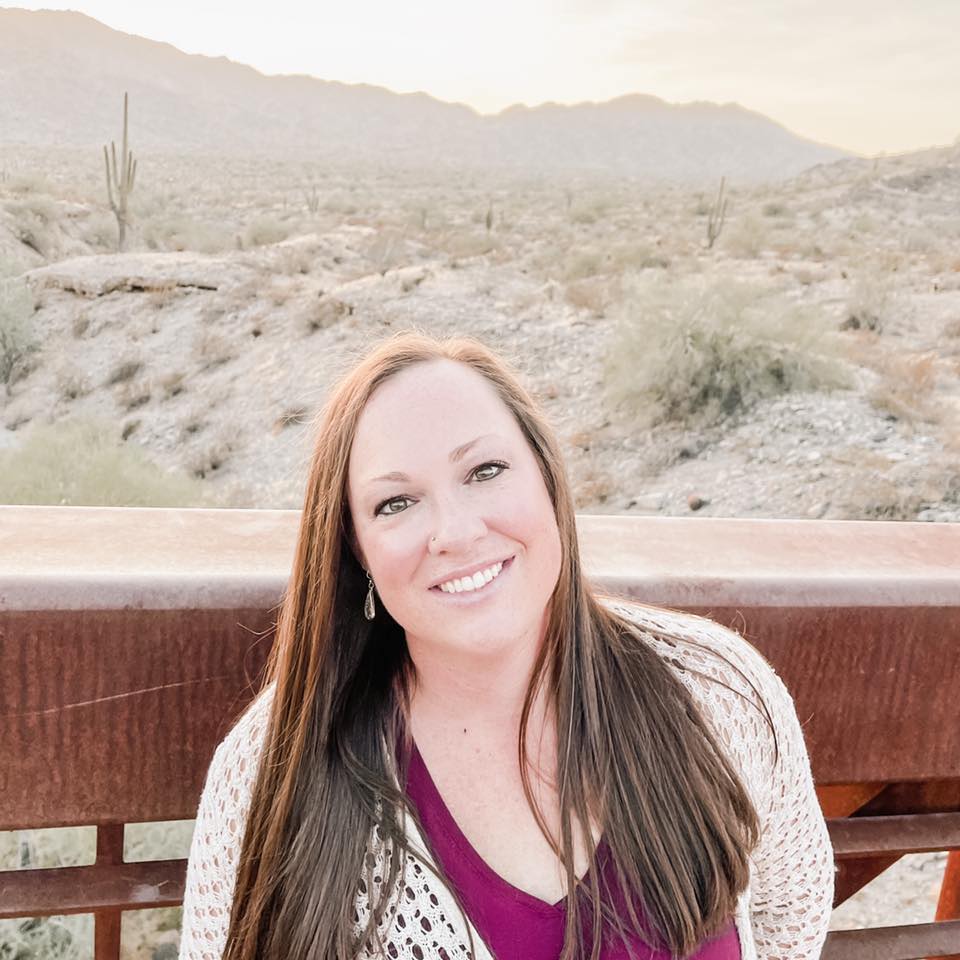|
I have been seeing so many posts lately about anxiety and since we have been in this 14 day challenge about stress and peace, I thought now would be the perfect time to write about the differences between stress and anxiety, the overlap and also how boundaries play a role.
Let’s start with what is the difference between stress and anxiety. According to the APA, stress and anxiety can manifest in similar ways so from the outside, it may be hard to distinguish. However, the root cause is different. Stress is caused by external factors such as work deadlines, sick kids, an upcoming trip, financial struggles etc. However, anxiety does not have to be triggered by anything external. It is a persistent worry that is not contingent upon outside factors. It can be related to specific areas such as medical anxiety due to a medical show that traumatized you as a kid or social anxiety due to being bullied. For some, it is generalized anxiety where the persistent worry is about anything and everything. For most cases, what helps anxiety also helps stress and visa versa. Some of those things are deep breathing, progressive muscle relaxation, exercise, healthy eating, identifying and learning ways to manage triggers, eliminating or minimizing caffeine, meditation, routine and self-care, to name a few. Of course, there are instances where that is not true. For some people, even if you change all out the outside stressors, the anxiety may be present. Similarly, some medications may help anxiety but not be helpful for stress. In both cases, setting boundaries can help the symptoms so let’s talk about that. As we have talked about in other posts, in order to identify where we need boundaries, we need to identify our pain points. So, if we look at common pain points with stress and anxiety, a lot of it stems from lack of perceived control, taking on too much, not practicing self-care and distorted thinking. Knowing that, what are some boundaries we may need to set? Maybe we need to set boundaries around how much we commit to and say no to some things we may want to say yes to but we cannot in this season. Or perhaps we need to set boundaries around making our mental health a priority and budgeting in therapy and medication. Maybe we need to set internal boundaries with ourselves that we do not let our anxiety dictate our choices but when we are struggling, we seek support and those to keep us accountable. Let’s face it, there are a lot of boundaries we can set to help mitigate stress and anxiety through both internal and external boundaries. But it isn’t going to be easy. It is going to take a lot of work and consistency and if you do it, it will help so much in the long run. You will lessen your stress and anxiety and increase your peace. You will be able to be more present for those around you and have more energy for the things that fuel you. Do you struggle with anxiety or stress? If so, what are some boundaries you need to set today?
0 Comments
I am soooooo excited to share with you some of my top favorite books. As I was planning this post out, there were so many that popped into my head, all of which made a difference in my life in different ways but impactful ways none the less. So, keep in mind this is not an exhaustive list but does highlight a few of my favorites. First, let’s start with The Happiness Project by Gretchen Rubin. This book was gifted to me by a colleague, now friend. Honestly, I was a little skeptical but soon after starting the book, I was hooked. I loved how she broke out each month thematically and had a focus instead of trying to implement everything at the same time. If you are looking for a change in your life but don’t know where to start, I highly recommend this lighthearted book to inspire you to find growth in various areas of your life. The second one is Growing Yourself Back Up by John Lee. I recommend this book to almost all of my clients. It is such a great read! It helps you identify areas of your life that may be triggering unresolved trauma which reverts you back into a childlike state. Now, before you say you don’t relate to that, we all have areas where we respond in less than ideal ways and this book helps us not only identify those areas but also teaches practical steps to cope and heal with those triggers. Next would be The Subtle Power of Spiritual Abuse by David Johnson and Jeff VanVonderen. I have seen so many people in my life, both personally and professionally, that were turned off by Christianity because of what they experienced by “the church”. While not all churches are like this, there are some churches and Christians who have distorted or manipulated the Bible to suit their needs instead of how God intended and as a result, people have been hurt. This book does such a great job of identifying those wounds, what the Bible really says and how to heal from that hurt so you can distinguish the difference between man and God. Fourth would have to be The Total Money Makeover by Dave Ramsey. I was introduced to this book by my boss when I was 19 years old and was going to buy a new car with payments. She was insistent that I read this book and even let me borrow her audiobook so that I could listen to it in the car and while I was working. This book was a total game changer for me. I have followed the Dave Ramsey principles fairly closely my entire adult life and I have reaped the benefits in so many ways. I remain debt free (except for my house) and am able to live on less than I make so I can give, save and spend in healthy ways. If you are not already on the Dave train, I highly recommend hopping on. Last, I would choose Daring Greatly by Brene Brown. I am a huge fan of her early work (The Gifts of Imperfection, I Thought It Was Just Me But It Isn’t, Daring Greatly). This book motivated me to visit the gravesite of my childhood best friend, which I had never done. I also went sky diving and a few other things I had been avoiding or scared to do. But, the biggest thing I did as a result of the book was start online dating, which led me to meeting my now Husband, who I have been married to for almost 8 years. The book does such a great job of addressing shame, fear and all of the other things that stop people from trying something new or doing something scary. Those were just a few of my favorite books personally and professionally. What are some of your favorite books? I would love to hear! I was recently on a podcast talking about marriage and trauma, which you can find HERE. As I was preparing for the podcast, I was thinking about how there are so many manifestations of trauma that can show up in relationships that we may not even realize. First, we need to understand what trauma is. Pia Mellody defines trauma as “anything less than nurturing”. That is also the definition I use in my practice so let’s go with that today. With that in mind, think of all of the less than nurturing experiences you had in your childhood. Now, think of all the less than nurturing things that have happened to you as an adult. Overwhelmed yet? Those are all the little t and big T traumas that manifest in various ways in our day to day lives. Let’s go over a few.
*Reactivity- When thinking about our reactions and responses to what someone says or does, anything above a 3-4 on a scale of 1-10 with 1 being no impact and 10 being explosive is triggering past trauma. Now if we think of it in those terms, what are some ways we are triggered in our relationships. When our partner gives us a slight critique do we find ourselves explosive or with overwhelming emotions? When someone raises their voice do we notice that we shrink in our demeanor? When we are told to calm down do we have to find down rage inside? Those are all signs of a trauma response and more often than not, it is triggering unresolved childhood trauma. *Love Addiction/Love Avoidance-While we don’t have enough time to go into all aspects of this in this blog post, the most simplified version is that if we were enmeshed my mom, we tend to see women as overwhelming, needy or suffocating and hold women at an arm’s length away (love avoidance). If mom abandoned us, we tend to me more clingy or close with women (love addiction). The same pattern is true with dad and men (ie. If dad was distance we are more love addicted with men and if dad was enmeshing we are more love avoidant). Now, keep in mind even though the term uses the word “love” this is not actually about love at all, it is about our interactions in relationships. If our parents were enmeshing and abandoning simultaneously, we tend to have highly conflictual relationships with a push/pull dynamic. *Inability to communicate wants/needs-If we struggle identifying our wants and needs or sharing them with others, those are red flags we have unresolved trauma. Either our wants and needs were not met and so we learned to disconnect from them or were taught we were too needy or dependent and were taught to do everything ourselves and be anti-dependent. I could go on and on about how trauma manifests in relationships but I think this gives you a good glimpse. So, what if you see these in you or your partner within the relationship? First, acknowledge that there is trauma and then seek help. That may be reaching out to a pastor, mentor, coach or counselor. Get some healing or support your partner in their healing so that your relationship is no longer dictated by trauma. It is not a quick or easy process but let me guarantee you, it is worth it. Live in Arizona and want to work on trauma? Reach out to me! Even if we are not a good fit I can refer you to many other providers in the valley. Remember, you are worth healing! |
AboutJocelyn is a Licensed Professional Counselor and course creator who desires to help clients heal and grow into who God created them to be. Archives
August 2022
Categories
All
|
|
Providing holistic mental health
counseling to help you find healing and live courageously. |
© 2023 Courageous Living. All rights reserved.


 RSS Feed
RSS Feed
